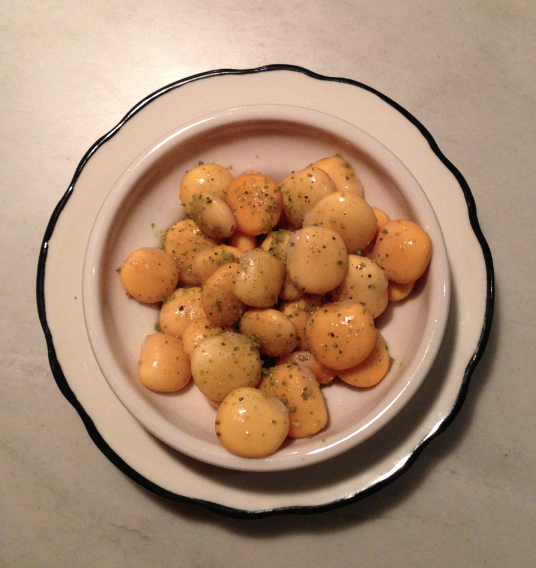If you’re looking for a legume to enlighten your life – check out the Lupini Beans.
Lupini beans – also called lupin – were prolific in the ancient Roman diets and in the countries of the Mediterranean region. Today, because of the labor intense process required to soak and detoxify the bitter beans, lupini beans are commonly – and conveniently – sold brined and in a jar. The reason the beans are soaked and detoxified is because they have potentially dangerous alkaloids which require the beans to be soaked repeatedly to get rid of as much alkaloids as possible.
There are three main types of lupini beans:
- Lupinus albus;
- Lupinus mutabilis;
- Lupinus hirsutus.
“Sweet Lupins” are a strain of lupini bean that are less bitter than the other strains. They don’t need as much soaking as the other strains.
Like all legumes, lupini beans are a good source of dietary fiber and protein. One cup of cooked lupini beans provides 200 calories, 5 grams of dietary fiber and a whopping 26 grams of protein. They do not have saturated fat or cholesterol. They include Vitamins A, B1, B2, B3, B6, B9, and C as well as being a good source of iron, magnesium, potassium, phosphorus, sodium, and zinc.
While most people prefer to pop the beans out of their skin before eating, it is possible to eat the skin along with the meat. Lupini beans have been used as a nontraditional treatment for arthritis pain – and in one instance have been shown to be the cause of a phytobezoar.
Although lupin is not required to be listed as a potentially allergenic agent in the US, some individuals who are allergic to peanuts may also be allergic to lupin.
Lupin flour is increasingly being added to other flours to enhance nutritional quality, but it poses an allergenic threat for some, and requires special handling to reduce toxic side effects for all. To learn more about the proper preparation of lupini beans, click here.
You may be able to find lupini beans in the international section of your local grocery store. They may be found in various forms: dried beans, flour, and jars of beans in brine.

